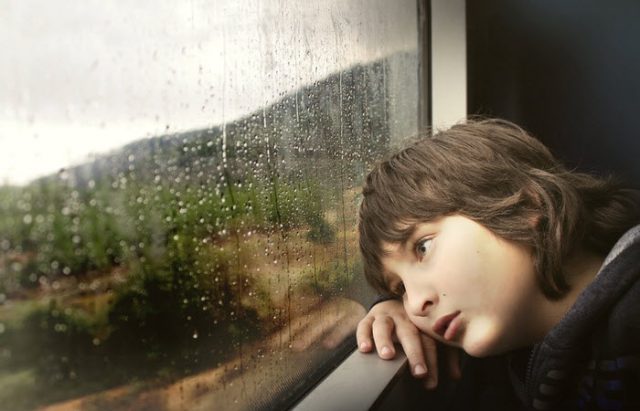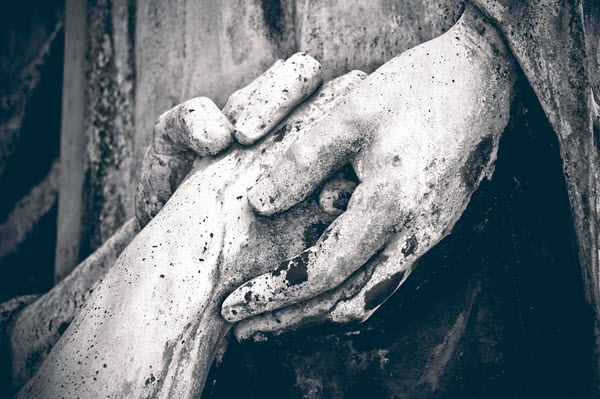Living After The Death Of A Loved One
By Joe Thomsett
March 2, 2017 • Fact checked by Dumb Little Man

I’ve been thinking about death.
My Dad died last year. Diagnosis to death in 5 weeks. A sharp 3-week decline and a 2-week hospital stay. A surgery that was never finished. Cancer had its day.
My friend is fighting off death, just. The big C again. It gets a lot of us. The NHS washed their hands off him. But in his words, “I am not a willing candidate to die.” He’s found advanced treatment in Germany at a cost of £150k.
We’re trying to raise money for him now.
So naturally, death is on my mind. In fact, since my Dad died, I don’t think it’s ever left. Grim has been hanging around, trying to entice me into his home, wanting to add another one to his ledger. He’s wasting his time.
I wish I could say it’s transformed me. That the smell of death has been a timely reminder that life is for a brief sneeze of time. That every second is precious. That life should be seized.
It has, kind of. Lately, it’s sent me to the recesses of my mind to the primeval dwellings where loss, pain and love reside. Like an indefinite Airbnb stay, I’ve been hanging out here.

And I think loss does that to you. I think it’s like being hit by a train, but not realising you've been hit until you wake up from the coma you’ve been in for the last 6 months. And then you hurt. Basic function for 6 months, just about connecting with reality, and then massive constant pain.
The sort of pain that induces lethargy in the day but keeps you up all night. The sort of pain that makes you relive conversations and edit them for better outcomes. The sort of pain that blunts your reality, right here, right now.
And, like climbing out of quicksand, dealing with it can be hard. The first step is to acknowledge you’re in quicksand. Acknowledge the emotional pain you’re in, and then be still until you understand what that means. Only then can you begin to deal with it.
I’m writing this to say that struggling to deal with loss is okay. That you are not alone. That, you are suffering along a journey that millions of others before you have dealt with, and you can take comfort from that. They got through it, and so can you.
It’s hard, yes. If you acknowledge that, instead of carrying it with you, it gets easier. Realise that you’re human, that it’s okay to hurt, and that even the tiniest pitter patter of steps forward is progress.
In fact, largely, you soon realise that dealing with loss is hard, not just because of the loss itself, but because of the expectation you place on yourself that you should be fine about it.
“Just get on with it.” “You’ve got to keep living.” And so on. You find yourself comparing daily to the imaginary measuring stick you’ve set for yourself. “I should be doing better by now.” Like we do with our careers, or comparing with our friends. But worse, because this is pure loss.
So you’ve got to get rid of that measuring stick, and realise that it will take as long as it takes. Sure, there are ways to deal with it better, but time is the ultimate judge.
In fact, some loss never leaves us, and that’s okay. Do I think my Mum will ever fully heal from losing my Dad? No, because it was a 48-year old love. A deep-rooted, soulful kind of love. And the loss of that is the reminder of the love that was there. And so it can’t fully heal because of how deeply they loved each other.

And that’s fine. Because we can take that loss and use it daily as a reminder of how capable of love we are. We can say, “Today I hurt from loss, and I am going out into the world and expressing love. In my interactions, in my relationships, in my career.
Sharing is also liberating. Talking to others, sharing your pain. It gives the other person the chance to express their love and it helps to fill your empty cup. It creates new connections and new possibilities.
See Also: How To Get Back a Normal Life After a Loss
My friend who is battling death is a wonderful example. Stoic-like, he says to me, “I can acknowledge this is what happened (getting ill). Then I have two choices. I can either let the pain I feel own me and overwhelm me, and I’ll die. Or I can use it, acknowledge it, and solve the problem in front of me (getting better).”
So dealing with pain means acknowledging pain and going into the world anyway. It’s not pretending it doesn’t exist. That’s the same as being shaped by it. Instead, it’s saying, “Hello pain, hello loss, I see you,” and then getting from your day anyway.
See Also: 8 Tips for Coping with Pet Loss




